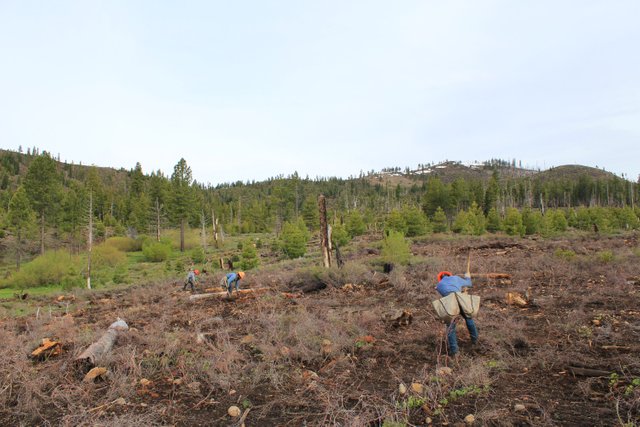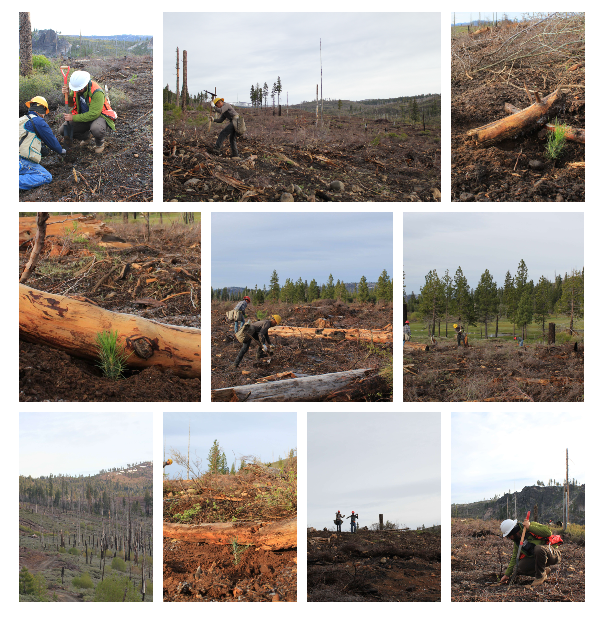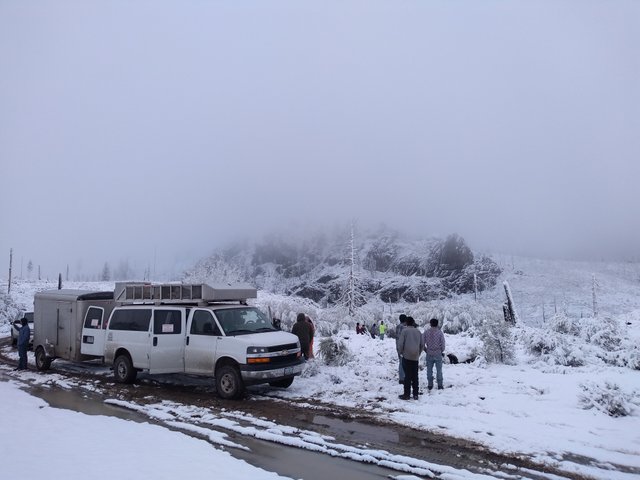This is a repost of this post and is not an original content. This post is to spread the great work done around the world. All funds from this post will go towards supporting One Tree Planted.
More than 160,000 Trees Planted in Plumas National Forest, California
California just got a whole lot greener thanks to a recently finished reforestation project in Plumas National Forest!
With your support, our planting partners were able to get 161,060 trees in the ground to restore precious forests destroyed by wildfires.
Moonlight Fire Restoration
Nearly 12 years ago, a severe wildfire burned through 37,000 acres of the Plumas National Forest, and covered more than 100 square miles of Northern California. Sadly, much of the fire burned at high intensity, converting long-standing conifer forest to mountain shrub-lands - which have a significantly lower ecological value for biodiversity, carbon sequestration, and watershed health.
Ever since, the Moonlight Fire Restoration Project has been working to convert over 12,000 acres of that land back to the beautiful conifer forest it once was!

During this year's planting season, our partners restored a total of 817 acres of forest, planting native species like Ponderosa Pine, Douglas Fir, Sugar Pine, Incense Cedar, and Jeffery Pine that will help the forest recover.
Planting these native species after wildfires is a critical part of restoring an ecosystem. Native trees and plants help maintain the forest's balance, stops the proliferation of invasive species, and returns the forest to its natural beauty. As these trees grow up to be big and strong they will also help stabilize the soil and prevent erosion as the forest floor continues to recover.
Over time, stabilizing the soil will also benefit water quality of the watershed. Farmers and communities from across the state of California rely on the National Forest's watershed for agricultural irrigation, drinking water, and hydro-electric power production.

The project area is also popular for outdoor recreation, and through restoration more visitors will benefit the local economy. And in regards to habitats, the conversion from forested areas to shrub-land at a landscape scale creates barriers for species that need connectivity in forest habitats. This project strategically creates bridges of forested land across this converted shrub-land habitat.
In case you're wondering why the seedlings are planted next to downed logs, there's a good reason for that!
Since the land is currently in a degraded state without adequate trees and root systems already, the soil is prone to erosion and landslides. Planting slightly downslope of these natural structures helps slow the flow of water and debris onto the seedlings when it rains, and offers protection as they grow.
Snow in May?
While all of the trees did end up in the ground, it didn't happen without its challenges.
In fact, at one point our partners had to call it a snow day... in MAY!
There was also a particularly high amount of precipitation this season that delayed planting on a few separate occasions. But overall, the extra water was hugely beneficial for the trees and will give them an even higher chance of survival through the rest of the season.

Restoring more than 800 acres is great progress towards bringing back sections of forest lost to out-of-control forest fires, but there is still a lot more work to do!
Thank you to everyone who supported this project and made it a reality. Truly could not have done it without you.
If you are interested in learning more about our work in California, make sure to check out our projects page. We have lots more plantings in California and in National Forests across the United States. We even have a project that helps protect endangered orcas!
Thanks for reading and supporting my Tree Planting Project.
Find me on Steemit and Whaleshares
Find me on Steemit and Whaleshares
